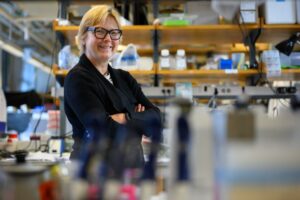
Scientists have achieved a groundbreaking milestone by sequencing the complete genome of Caenorhabditis elegans (C. elegans), a roundworm extensively utilized in biological research. This achievement paves the way for synthetic biologists to innovate and test genetic modifications in multicellular organisms, with significant implications for human health research, including cancer studies.
In a paper published on July 15 in the journal Genome Research, researchers from Cornell University, the University of Tokyo, Stanford University, the University of Minnesota, and Rockefeller University detailed their decade-long endeavor to fully map the genome of this transparent nematode. Measuring about 1 millimeter in length, C. elegans has been a cornerstone of genetic and cellular communication research for over 60 years.
The Significance of Model Organisms
Model organisms like fruit flies, brewer’s yeast, and E. coli are integral to the research community for exploring fundamental biological processes. The use of these organisms allows scientists to replicate and build upon each other’s work with consistency. C. elegans became a model species in the 1960s and has since been instrumental in Nobel Prize-winning research on genetic regulation and programmed cell death.
Erich Schwarz, a co-author of the study and assistant research professor of molecular biology and genetics at Cornell’s College of Agriculture and Life Sciences, emphasized the importance of genetic uniformity in model species. “If you’re trying to understand human medicine, human biology, you can start by studying much simpler organisms,” Schwarz explained. “In a model animal that you want to manipulate, knowing the ‘normal version’ of their genetic code is a very important thing.”
Advancements in Genome Sequencing
The rapid development of genome sequencing in the 1990s enabled scientists to map the genomes of model species. The genome of single-celled E. coli was identified in 1997, and the initial description of the multicellular C. elegans genome was believed complete between 1998 and 2005. However, by 2019, it became evident that the C. elegans genome was not fully described, with genetic variations emerging in lab-used specimens.
Andrew Fire, a co-author of the paper and a Stanford professor who won the Nobel Prize in 2006, noted these variations. “Over 60 years of widespread use, genetic variations had begun to crop up,” Schwarz said. The recent efforts by 14 researchers across five universities have now corrected the full genome, identifying 183 previously unknown genes and 6 million additional base pairs.
“Having this complete, corrected genome for C. elegans is a very basic resource that will allow other people to drive down an intellectual road and discover things we can’t even imagine yet,” Schwarz stated.
Implications for Medical Research
Basic scientific research, while sometimes challenging for the public to grasp, is essential for medical and technological advancements. Schwarz highlighted the breakthroughs in understanding oncogenes in the 1980s, facilitated by research on C. elegans and fruit flies. These genes are strongly associated with cancer development.
Looking ahead, synthetic biologists aim to achieve future breakthroughs by manipulating and constructing genetic codes in plants and animals. Initial efforts have focused on single-celled organisms like E. coli and brewer’s yeast. C. elegans, as a multicellular organism, represents the next frontier in this research.
Future Prospects and Support
The complete genome sequencing of C. elegans is expected to catalyze numerous scientific discoveries. “This development represents a significant leap forward for synthetic biology and genetic research,” Schwarz remarked. The research was supported by various institutions, including the Japan Agency for Medical Research and Development, the Beckman Foundation, the American Heart Association, the U.S. National Institutes of Health, and Cornell University.
As scientists continue to explore the intricacies of genetic codes, the implications for human health and biotechnology are vast. The corrected genome of C. elegans not only enhances our understanding of fundamental biology but also sets the stage for future innovations in medicine and beyond.







